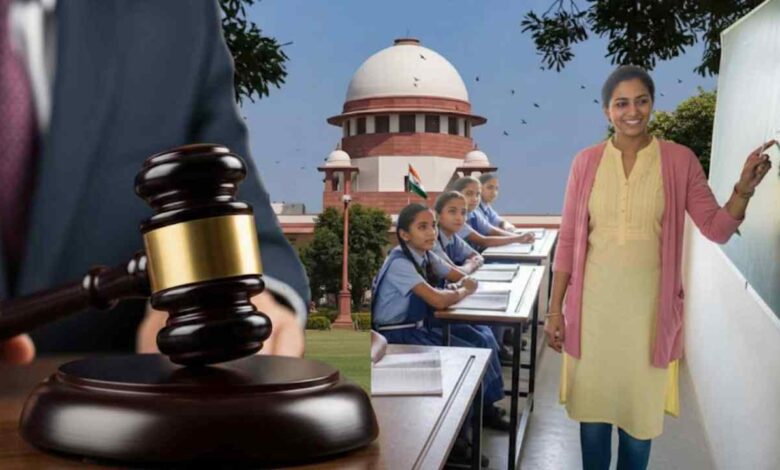Mandatory TET for In-Service Teachers: Supreme Court Verdict Faces Review Petition

TET for In-Service Teachers: In a recent landmark ruling, the Supreme Court of India has made it mandatory for all in-service teachers to pass the Teacher Eligibility Test (TET). This verdict marks the beginning of a major change in the country’s education system, especially in Kerala, where nearly 5,0000 teachers are affected by this new rule. The Kerala government has decided to file a review petition against this verdict, sparking a nationwide debate.
The Core Issue
According to the Supreme Court’s order, all teachers from classes one to eight must pass the TET examination to retain their jobs and be eligible for promotion. This rule is based on the Right to Education Act, 2009, and the 2010 guidelines from the National Council for Teacher Education (NCTE), with the primary objective of ensuring a minimum standard of teacher qualification across the country and improving the quality of education.
The Kerala Government’s Stance
Kerala’s Education Minister, V. Sivankutty, has announced that the state government will challenge this verdict. According to them, implementing this rule retrospectively is an injustice to the teachers. Since education falls under the Concurrent List of the Indian Constitution, the state government wants to present its case on the matter.
Impact on Teachers
This ruling has caused widespread concern among teachers. According to the new rule:
- Teachers with less than five years remaining until retirement can continue their service without passing the TET, but they will not receive any promotions.
- Those with more than five years of service remaining must pass the TET within the next two years; otherwise, they will have to take compulsory retirement.
This rule will affect millions of teachers in both government and private schools, creating significant uncertainty in their careers.
Expert Opinions
Education experts have welcomed the verdict as it will help improve the standard of education. However, many believe that suddenly imposing this rule on experienced, in-service teachers is not reasonable. In their view, the government should have implemented this rule gradually, providing a clear timeline and training facilities.
Future Steps
A lot depends on the outcome of the Kerala government’s review petition. If the Supreme Court accepts their plea, there might be some changes to this rule. However, if the verdict is upheld, state governments across the country will have to prepare for its implementation. Teachers also need to prepare themselves to face this new challenge. This event proves that the Indian education system is evolving and highlights how crucial it is for teachers to continuously update their skills.

